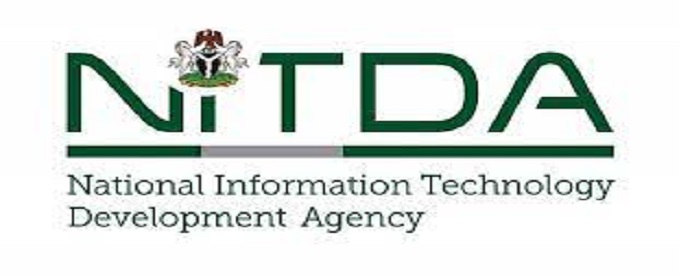Telecom
NITDA, NUJ Partner on Digital Journalism

In order to check quackery and the rising cases of fake news in the practice of journalism as well as provide eligible journalists with the latest technological tools with which they will carry out their jobs professionally and be at par with international best practices, the National Information Technology Development Agency (NITDA) has given a nod to the proposed partnership sought by the national body of the fourth estate of the realm -The Nigeria Union of Journalists (NUJ).
This was during a courtesy visit by members of the Union, led by it’s National President, Mr Chris Isiguzo.
Kashifu Inuwa, Director General, National Information Technology Development Agency (NITDA), while emphasizing the relevance of emerging technologies in journalism, decried the adverse effect of fake news which he described as unimaginable and a huge threat to the profession.
“Today, anybody can be a journalist without knowing the journalistic ethics. So, how can we address that? We can only do that through this kind of engagement; by training and retraining because journalists need to understand that it is now about digital journalism and for you to engage in that, one needs to understand the technology and be able to verify information and it’s source before publishing or broadcasting”.
Although saddled with the mandate of regulating the use of Information Technology (IT) in the country, the DG noted that in recent times, the responsibility has gone beyond establishing the DOs and DON’Ts due to the dynamic nature of technology which he said has further necessitated the need to up the ante in making journalists acclimatized with requisite skills and ‘technology know how’.
“We need to always reskill, update our knowledge and understand how the technology works in order to harness the potentials and use it for better things because technology can be used as either a tool or a weapon; so it is left for the user to decide what should drive the purpose…so everyone has a part to play in ensuring that unscrupulous elements don’t misuse the tech to mislead people”.
While describing journalism as the best medium to sensitize the public on what the Federal Government is doing towards achieving a digital Nigeria, Inuwa said the partnership would greatly be beneficial to both parties.
“As a government, we have an ambitious target of achieving ninety five per cent digital literacy by twenty thirty. It is not possible for us to train ninety five percent of the population on one on one basis, so we need to be innovative; We need to find a way of leveraging on organizations like yours to achieve that because if we can have people writing about digital literacy, the reach would be far more wider than what we can do as a government so that’s why we had already even started engaging your members in some states of the federation; training and letting them know they have a responsibility of helping the government in sanitizing the system so that we can address the challenge of fake news misinformation and disinformation”.
On the forthcoming National Executive Council/ Workshop on Digital Journalism organized by the Union, the NITDA Boss expressed interest in the planned programme and assured the body of the agency’s support.
He also encouraged the team to work out the modalities for the interventions/ trainings as requested in order for NITDA to know the number of members and make adequate provisions toward kick-starting the process.
Speaking earlier, the National President of the Nigeria Union of Journalists (NUJ), ChrisStrategic Roadmap and Action Plan (SRAP- 2021-2024 Isiguzo while applauding NITDA for the different training sessions held for journalists in Jigawa, Kano, Gombe, Katsina States e.t.c. which he observed are usually accompanied with working tools, said the visit was to formally meet for the first time with the DG and also express the Union’s profound gratitude for the ongoing training packages so far and to seek for partnership at the national level.
“A journalist that is not exposed to constant training and retraining programmes is danger to the society and that’s why what you’re doing, we must applaud and we are also asking that we take it beyond and accommodate more of our people so that they will also benefit; that way, such issues about fake news which of course is about misinformation, disinformation and the rest of them would have been effectively tackled”.
Isiguzo also appealed for digital facilities to be provided for the Union’s National Secretariat and International Institute of Journalism in order to aid optimal operations.
“There’s need that we get those facilities because most of our colleagues especially those operating online always come back because they don’t have offices and that’s why the umbrella body there is more like a shade and was provided to everybody that come and when you have these people operate within one enclave control is easier.
“So we also want to demonstrate some level of control that’s why we are asking for your assistance with some of these facilities and I believe that it will go a long way in also helping the government and its message against fake news”.
The believe is that the partnership forged during the meeting will ultimately be a step closer towards making journalism practice in Nigeria more technologically driven and devoid of unprofessionalism while NITDA achieves some of it’s seven pillars in the Strategic Roadmap and Action Plan (SRAP- 2021-2024) including Digital Literacy and Skills.
Telecom
MTN Says New N6.98 USSD Charge Won’t Affect Airtime Recharge

Lynda Saint-Nwafor, chief Enterprise business officer, MTN Nigeria, has assured the network subscribers that the new end-user billing system for the use of USSD services will jot affect them.

USSD, otherwise Unstructured Supplementary Service Data codes are commonly used for banking transactions, airtime recharges, and other mobile services.
The telco said that there is no significant impact or change other than the fact that they will now pay the same N6.98 per session (120 seconds) with their airtime instead of direct bank debit.
Saint-Nwafor, said this during a chat with MTN MIP fellows, explaining that the Central Bank of Nigeria (CBN) and the Nigerian Communications Commission (NCC) have ordered telecom operators to ensure that the new billing model resolves trust issues and ensures transparency in the billing process.
“Our regulator insisted that at the end of every month, we are going to be providing history and statistics on the performance of the service across the board”, she explained.
Saint-Nwafor added that the new billing model has standardized messaging across all operators and ensures consistent communication with customers.
“We will take all the error codes and map them into messages that are standardised across the board. So, if you initiate a transaction, you will know if it is failing. And, when the transaction fails, you will know if it is from your bank or the telco,” she explained.
Telecom
Crypto Scam Unmasked: U.S. Recovers Record $225m in Global Fraud Bust

The U.S. government has recovered $225 million in what is now the largest seizure of funds linked to a cryptocurrency investment scam.

In a statement released Wednesday, June 18, the U.S. Attorney’s Office said the recovery followed an extensive investigation by the FBI and the U.S. Secret Service, using blockchain analysis and other forensic tools. The statement did not confirm whether any arrests had been made.
According to the authorities, the stolen funds originated from fraudulent cryptocurrency investment schemes that tricked victims into believing they were making legitimate investments. More than 400 individuals around the world, including dozens in the United States, were reportedly affected.
The operation involved a sophisticated money laundering network that carried out hundreds of thousands of blockchain transactions to obscure the source and ownership of the stolen assets.
“These scams prey on trust, often resulting in extreme financial hardship for the victims,” said Shawn Bradstreet, Special Agent in Charge at the U.S. Secret Service office in San Francisco.
Bradstreet added that U.S. officials hope the recovered funds can eventually be returned to the rightful victims.
Cryptocurrency investment fraud accounted for over $5.8 billion in reported losses in 2024 alone, according to the statement.
Telecom
Nnaemeka Ani Calls on African Techies to Rewrite the Narrative

In a rousing declaration that is electrifying minds across the continent, Hon. Nnaemeka Ani, Special Adviser on ICT to Enugu State Governor, Dr. Peter Mbah, has called for a homegrown digital revolution under the banner “Africa Will Rise: By Code, By Courage, By Us.”

Hon. Nnaemeka Ani
The message, part challenge, part philosophical—seeks to galvanize African innovators to move beyond buzzwords and build technology with impact and legacy in mind.
“Let’s stop building for hype. Let’s start building for legacy,” Ani urged while speaking to ICT journalists over the weekend. “Let’s stop waiting for someone else. Let’s start creating the future—on our own terms.”
At the heart of Ani’s vision is a shift from tech consumerism to tech authorship. With innovation hubs sprouting across cities like Enugu, Lagos, Kigali, Jo’Burg, and Nairobi, and a growing community of developers, engineers, and entrepreneurs determined to solve Africa’s unique challenges, the movement is already taking shape.
Ani emphasized that Africa’s future lies not in flashy apps or international admiration but in persistent, intentional solutions that uplift communities—solutions that digitize public services, bridge rural-urban divides, empower women and youth, and build resilience in food and climate systems.
“We have the talent,” he said. “Now it’s time to harness it—to stop building for likes and start building for lasting impact.”
With support from leaders like Ani and rising momentum in Africa’s tech corridors, it seems that a new chapter is being written—one line of code at a time.

 General News3 days ago
General News3 days agoNASRDA, Galaxy Space Firm Sign MoU on Satellite Connectivity

 Telecom3 days ago
Telecom3 days agoOver 1m Nigerians Reached through MTN Staff’s Digital and Community Outreach

 Telecom3 days ago
Telecom3 days agoMafab Gets 0724 Number Series, Launches Mcom 5G Brand

 News3 days ago
News3 days agoDBN Awards N13m in Grants to Tech Startups

 Telecom3 days ago
Telecom3 days agoNCC to Name, Shame Telecom Infrastructure Vandals

 News3 days ago
News3 days agoFCCPC Shuts France, Belgium, and Italy Visa Centres in Abuja Over Alleged Consumer Rights Violations

 Telecom3 days ago
Telecom3 days agoWSIS Review: Nigerian ICT Leaders Urged to Shape Global Digital Future

 E-Financial3 days ago
E-Financial3 days agoBank Customers Petition CBN over Illegal Deductions, Demand Action




























